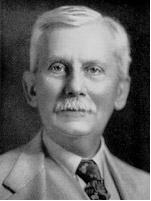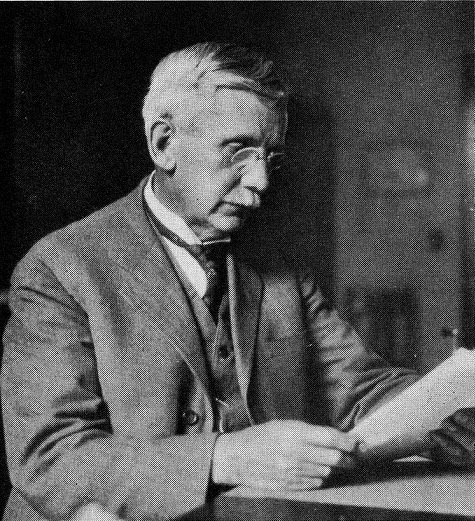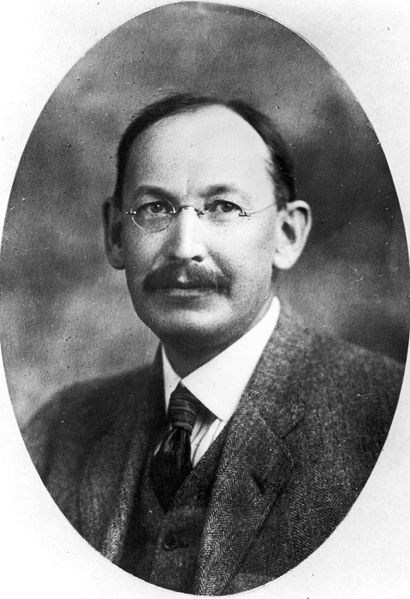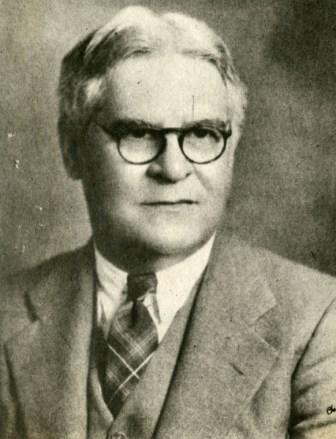<Back to Index>
- Invertebrate Paleontologist Charles Schuchert, 1858
- Geologist Charles David White, 1862
- Paleontologist and Botanist Edward Wilber Berry, 1875
PAGE SPONSOR


Charles Schuchert (3 July 1858 - 20 November 1942) was an American invertebrate paleontologist who was a leader in the development of paleogeography, the study of the distribution of lands and seas in the geological past.
He received a common school education, but, possessing an aptitude for scientific investigation, he early began a collection of fossils and the study of paleontology. During the 1880s, he made a living drawing fossil illustrations for state geological surveys, Minnesota's for example, and continued to search for specimens for his own growing collection. He was preparator of fossils with Charles E. Beecher at Yale University from 1892 to 1893. He served on the United States Geological Survey from 1893 to 1894. After serving as curator of the U.S. National Museum from 1894 to 1904, Schuchert joined the Yale faculty, succeeding Beecher, the first invertebrate paleontologist there. He served as president of The Geological Society of America in 1922.
Schuchert coined the term paleobiology in 1904. In 1934 Schuchert was awarded the Mary Clark Thompson Medal from the National Academy of Sciences.

Charles David White (July 1, 1862 - February 7, 1935), who normally went by the name David White, was an American geologist, born in Palmyra, New York.
He graduated from Cornell University in 1886, and in 1889 became a member of the United States Geological Survey. Eventually, he rose to be chief geologist.
In 1903 he became an associate curator of paleobotany at the Smithsonian Institution. He wrote numerous papers on geological and paleontological subjects.
The David White House, his home for 15 years, is a U.S. National Historic Landmark.
He made one of the most comprehensive studies on the Glossopteris Flora, the main component of the fossil deposits of mineral coal in Brazil.
David White won the Thompson Medal in 1931 and the Walcott Medal in 1934. He "himself considered that his structure - carbon ratio for the occurrence of oil and gas was his greatest scientific achievement."

Edward Wilber Berry (February 10, 1875 - September 20, 1945) was an American paleontologist and botanist, the principal focus of his research was paleobotany. Berry studied North and South American flora and published taxonomic studies with theoretical reconstructions of paleoecology and phytogeography. He started his scientific career as an amateur scientist. At Johns Hopkins University he held various positions including teacher, research scientist, scientific editor and administrator.